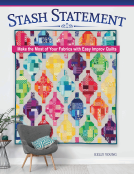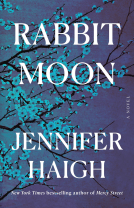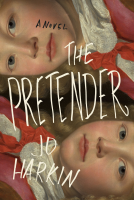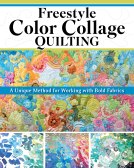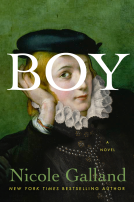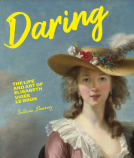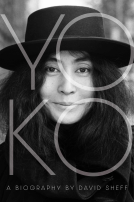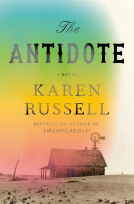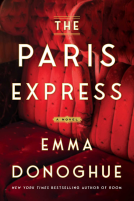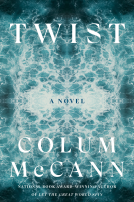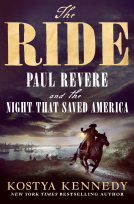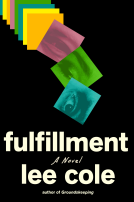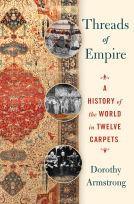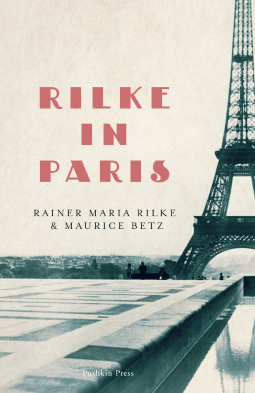
Rilke in Paris
by Rainer Maria Rilke; Maurice Betz
This title was previously available on NetGalley and is now archived.
Send NetGalley books directly to your Kindle or Kindle app
1
To read on a Kindle or Kindle app, please add kindle@netgalley.com as an approved email address to receive files in your Amazon account. Click here for step-by-step instructions.
2
Also find your Kindle email address within your Amazon account, and enter it here.
Pub Date Jun 25 2019 | Archive Date Mar 20 2019
Talking about this book? Use #RilkeInParis #NetGalley. More hashtag tips!
Description
NOTE: Due to file conversion limitations, users have expressed difficulty reading this galley in the Kindle app. The finished ebook will be optimized for each file type, but as we do not currently have those files, please note that you may experience difficulties with this book if you use the Kindle app.
Rainer Maria Rilke offers a compelling portrait of Parisian life, art, and culture at the beginning of the 20th century.
In 1902, the young German writer Rainer Maria Rilke traveled to Paris to write a monograph on the sculptor Auguste Rodin. He returned many times over the course of his life, by turns inspired and appalled by the city's high culture and low society, and his writings give a fascinating insight into Parisian art and culture in the last century. Paris was a lifelong source of inspiration for Rilke. Perhaps most significantly, the letters he wrote about it formed the basis of his prose masterpiece, The Notebooks of Malte Laurids Brigge.
Much of this work, despite its perennial popularity in French, German, and Italian, has never before been translated into English. This volume brings together a translation of Rilke's essay on poetry, 'Notes on the Melody of Things' and the first English translation of Rilke's experiences in Paris as observed by his French translator.
Available Editions
| EDITION | Other Format |
| ISBN | 9781782274742 |
| PRICE | $15.95 (USD) |
| PAGES | 144 |
Featured Reviews
"I am in Paris; those who learn this are glad, most of them envy me. They are right. It is a great city; great and full of strange temptations." from The Notebooks of Malte Laurids Brigge by Ranier Maria Rilke
I was in my late 20s when I discovered Ranier Maria Rilke. Although I have revisited his poetry over the years and read biographies and books about Rilke it has been forty years since I last read The Notebooks of Malte Laurids Brigge, the composition of which figures in Rilke in Paris.
I opened up my copy and was amazed to find underlinings and notations and bent pages and bookmarks. How could I have forgotten this book?
"I have succumbed to these temptations, and this has brought about certain changes, if not in my character, at least in my outlook on the world, and, in any case in my life." from The Notebooks of Malte Laurids Brigge by Ranier Maria Rilke
Rilke in Paris focuses on the writer's time in Paris. Rilke first came to Paris in 1902 as a young man. By 1926 he had died of leukemia. Betz plumbs letters and excerpts from Rilke's works to illustrate the city's influence on Rilke, forming his artistic vision, especially as related to his writing of the highly personal Notebooks.
Also included is Rilke's poem essay Notes On the Melody of Things.
The book is a concise overview of Rilke's life from the young poet seeking a mentor through his development as a writer, including his influences. I was interested to read how Nietzsche's The Birth of Tragedy influenced Rilke.
Beautiful black and white photographs of Rilke's Paris illustrate the text.
An entirely different conception of all things had developed in me under these influences; certain differences have appeared that separate me from other men, more than anything heretofore. A world transformed. A new life filled with new meanings." from The Notebooks of Malte Laurids Brigge by Ranier Maria Rilke
We encounter Rilke as a solitary whose quest for authenticity separated him from others so that even when they were in the same city he only dined with his wife weekly. He believed his mentor, the sculptor Rodin, when he preached that artists must give up personal life and happiness for their art. Rilke had presented himself to Rodin and was taken in, working as a personal secretary in exchange. A break forced Rilke on his own, and he took residence in Paris, and over the next twenty years, he returned to "the same Paris" between his wanderings across Europe.
Rilke spent time in the Luxembourg Gardens, observing and learning from the beauty and the ugliness he saw. I recalled one of my favorite paintings from the Philadelphia Museum of Art, In the Luxembourg Gardens by John Singer Sargent, even if it was painted in 1879. I wanted to be transported into that scene.
"For the moment I find it a little hard because everything is too new. I am a beginner in my own circumstances." from The Notebooks of Malte Laurids Brigge by Ranier Maria Rilke
I love to learn how writers work. Betz offers us a detailed look into the "Genesis" of The Notebooks. First came Rilke's encounter with the story of a poet who had lived in Paris for some time, and feeling a failure, died at age thirty-two. Rilke saw the Notebooks as a "sequel to The Stories of God." He became haunted by his imagined poet Malte. He worked on the book for years; "Prose must be built like a cathedral," he wrote Rodin.
"My God, if any of it could be shared! But would it be then, would it be? No, it is only at the price of solitude." from The Notebooks of Malte Laurids Brigge by Ranier Maria Rilke
The Notebooks "is a confession and a lyrical novel of sorts, a study in psychology and a treatise on the interior life," Betz wrote, "a moving example of maturation through solitude and lucid contemplation of the loftiest problems in life." I am glad to have read Rilke in Paris for it has brought The Notebooks back into my life.
I received a free ebook from the publisher through NetGalley in exchange for a fair and unbiased review.
